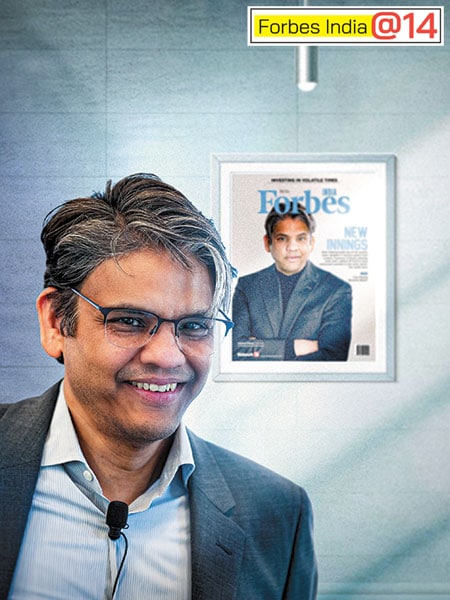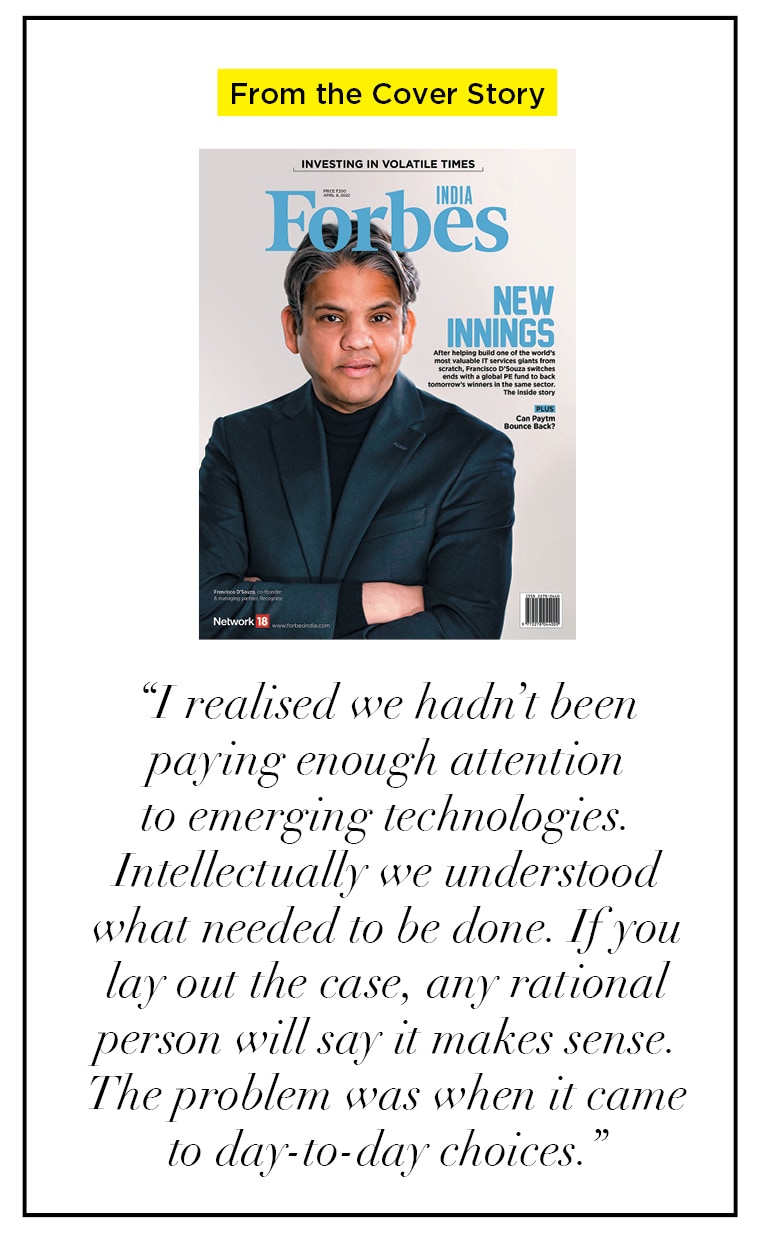
Francisco D'Souza on why the tech services industry is at a unique moment
When Forbes India first put Francisco D'Souza on the cover in May 2012, he was christened 'Chief Emerging Officer' for his efforts to reinvent Cognizant and the role of the CEO. Eleven years later, D'Souza, now co-founder of private equity firm Recognize, writes about another transformation of the technology services industry that's today being driven by radical technology innovation and the prospect of artificial intelligence, among other drivers
 Francisco D'Souza, Cofounder, Recognize
Francisco D'Souza, Cofounder, Recognize
History has shown that technology innovation, macroeconomic cycles, and business model shifts have been the primary drivers of change in the technology services industry. We’re at a moment when all these forces are impacting the industry simultaneously—creating opportunities for disruption and a reshaping of the industry.
Technology innovation has always been the main change driver in the tech services industry. Each new tech generation triggers a parallel change in the tech services industry. What’s different this time around is the tremendous fragmentation and speed of technology innovation. The underlying components of ‘digital technology’ like cloud, artificial intelligence (AI), 5G and Internet of Things (IoT), to name just a few, could not each be more distinct and profound.
Macroeconomic cycles like the great recession and the brief Covid recession have equally been drivers to reshape the structure of the tech services industry. The pandemic changed the relationship between employees and employers, and this will impact the services industry, changing the model of managing people and enabling a greater number of gig workers from around the world to join the industry. Finally, in the last three decades, we witnessed a single instance of a fundamental change in the business model of tech services as ‘offshoring’ became mainstream, driven by the convergence of high-quality global talent and low-cost bandwidth. Today, AI is initiating another business model shift, transforming what and how services are delivered to clients, and automating internal operations.
This realisation and the opportunity to innovate at the intersection of these three powerful change vectors for the industry led me to co-found Recognize. The pace of innovation and change in the industry in the past five years has been breathtaking—perhaps even more so in the last 12 months.
Recognize sees an opportunity to work with the next generation of services winners to create new models to deliver technology services and respond to the trends of technology innovation, specialisation, fragmentation, new human capital models and AI-driven business models.



 We are also investing in companies that have a new approach to human capital— tapping new talent pools around the world and bringing them to bear in new functional areas or business domains. We call this ‘New shoring’, and our investments in TORC (along with their developer productivity IP, Codealike) and Qubika are focussed on bringing new talent pools to the fore.
We are also investing in companies that have a new approach to human capital— tapping new talent pools around the world and bringing them to bear in new functional areas or business domains. We call this ‘New shoring’, and our investments in TORC (along with their developer productivity IP, Codealike) and Qubika are focussed on bringing new talent pools to the fore. 



